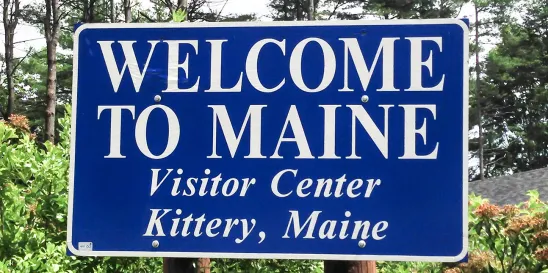The Law Court has dramatically reshaped foreclosure law in Maine, ending the Court’s outlier position regarding the effect of a defective notice of default. In Finch v. U.S. Bank, N.A., the Court held that, when a lender fails to comply with the notice requirements of 14 M.R.S. § 6111 prior to initiating a foreclosure action, the lender does not lose the right to subsequently enforce the mortgage. In so doing, the Law Court took the unusual step of overruling its prior precedent in Pushard v. Bank of America, N.A.
The Finch decision has significant implications, and is notable on multiple levels—including both the merits of the decision and the heated debate over stare decisis between the majority and the dissent. The stare decisis discussion deserves its own blog post, so we’ll tackle this decision in two parts.
The background is straightforward: the lender, U.S. Bank, issued a defective notice that failed to satisfy all of the notice requirements of section 6111 prior to filing its foreclosure action against the borrower, Finch. Section 6111 provides that a lender may not accelerate or enforce a mortgage until it issues a notice complying with that statute’s requirements. Nevertheless, in Pushard, the Law Court had held that, if a lender issues a defective notice and then initiates a foreclosure action, the lender (1) cannot carry its burden to prove that it is entitled to prevail in the foreclosure action because of the defective notice, but (2) the initiation of the foreclosure action nevertheless accelerates the maturity of the loan. The result, according to Pushard, was that the judgment in that foreclosure action operates by res judicata to prevent the lender from enforcing the mortgage and requires transfer of title to the borrower. Following the dictates of Pushard, the trial court entered judgment requiring U.S. Bank to discharge the mortgage, meaning that Finch, as the defaulting party, held title free and clear.
After asking the parties to brief whether it should overrule Pushard, the Court took that step. As the Court wrote:
The effect of Pushard is that a typographical error in a section 6111 notice issued before the commencement of a foreclosure action can result in a literal forfeiture of the lender’s entire interest in the note and mortgage and transfer of title to the borrower. The disproportional and draconian nature of that result, the doubtful legal premise that it rests on—that a lender can accelerate a loan balance by commencing a foreclosure action without having the statutory right to take either step[—]and the fact that no other jurisdiction has adopted either that result or that premise combine to call our Pushard analysis into question.
The Court’s rationale rested primarily on the plain language of section 6111, which makes it clear that, when a lender fails to comply with that provision, the lender lacks the right to accelerate the note or foreclose on the mortgage. Based on that plain language, the Court concluded that, when a lender lacks the right to accelerate the note, the note cannot be accelerated by the filing of a foreclosure action that the lender is prohibited from bringing. Because the lender cannot accelerate the note or enforce the mortgage, entry of judgment on the mortgage proceeding does not mean that the lender’s claim for the amount of the note and enforcement of the mortgage has been litigated. Thus, res judicata—which only bars subsequent litigation if the matters presented in the second action were or might have been litigated in the prior action—does not apply, and a subsequent foreclosure action is not barred. The Court supported its reasoning with citations to the Restatement (Second) of Judgments, a close analysis of its case law predating Pushard, as well as jurisprudence in other states reaching similar conclusions.
The effect of Finch is to end what the Court termed “court by casino”—entry of judgment in favor of a defaulted borrower, resulting in transfer of title, based on a technical error in a notice of default. Notably, however, the Court did not grant lenders carte blanche. It noted that lenders would lose the right to recover the amounts owed through the date of judgment based on the defective notice, and it also noted that lenders may be required to pay the borrower’s attorneys’ fees as a result of the foreclosure action. Further, repeated failures by the lender may result in the forfeiture contemplated by Pushard. But that is no longer the default result of a one-time typographical error. Instead, lenders will have the opportunity to bring a further foreclosure action following issuance of a proper notice of default.
Finch is likely to have continuing reverberations in the foreclosure context. The dissent asserts that the decision calls into question “multiple lines of cases” and “well-established principles of . . . foreclosure jurisprudence.” There is no question that Finch signals a significant shift—Pushard was decided by a unanimous six-justice panel in 2017. Three of those justices dissented in Finch, while one joined the new four-justice majority in Finch. The shift raised a serious debate about the doctrine of stare decisis between the majority and dissent—a topic for the next post on this blog. But Finch also brings certainty, predictability, and fairness into foreclosure law by ending Maine’s outlier status on this issue.



 />i
/>i

